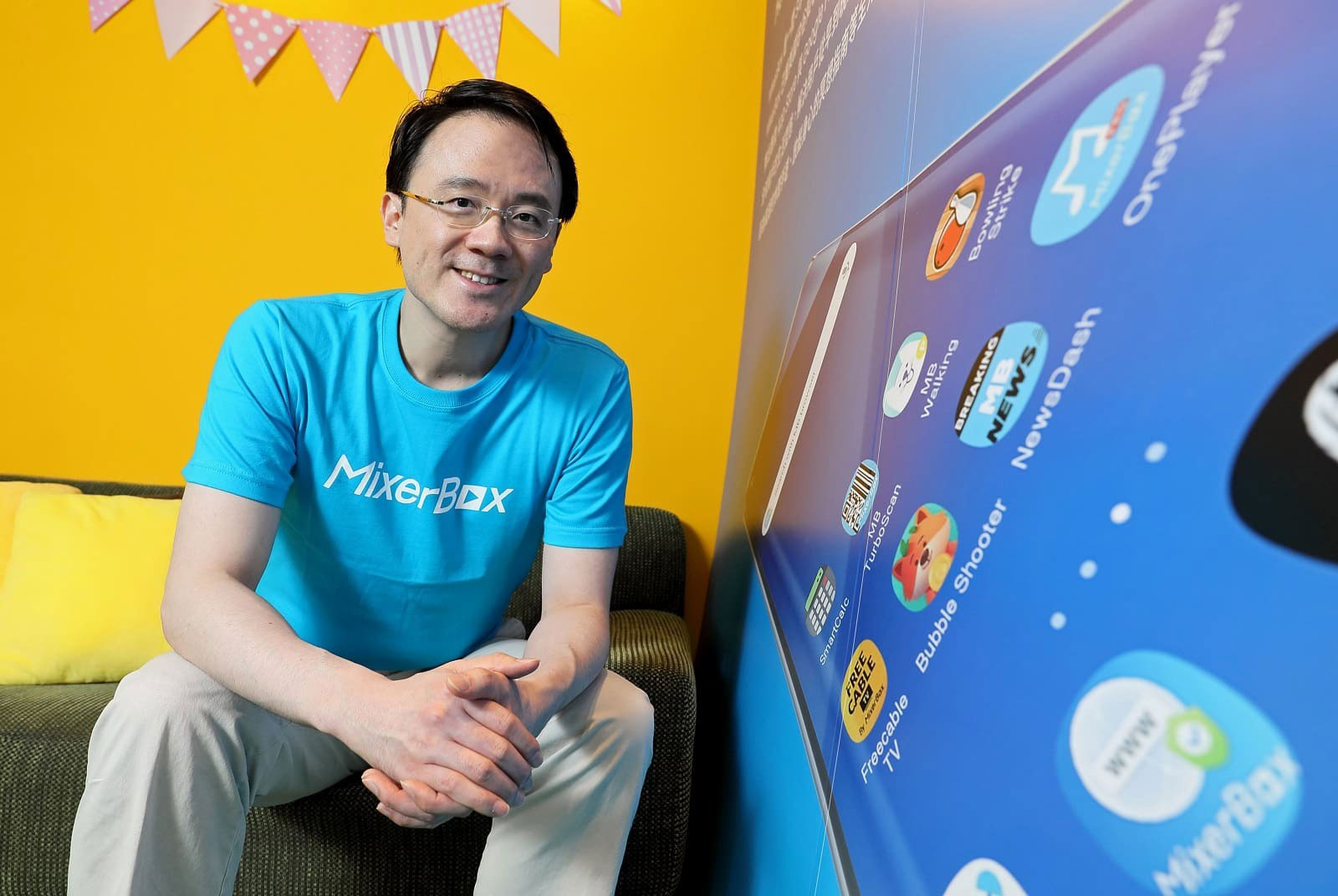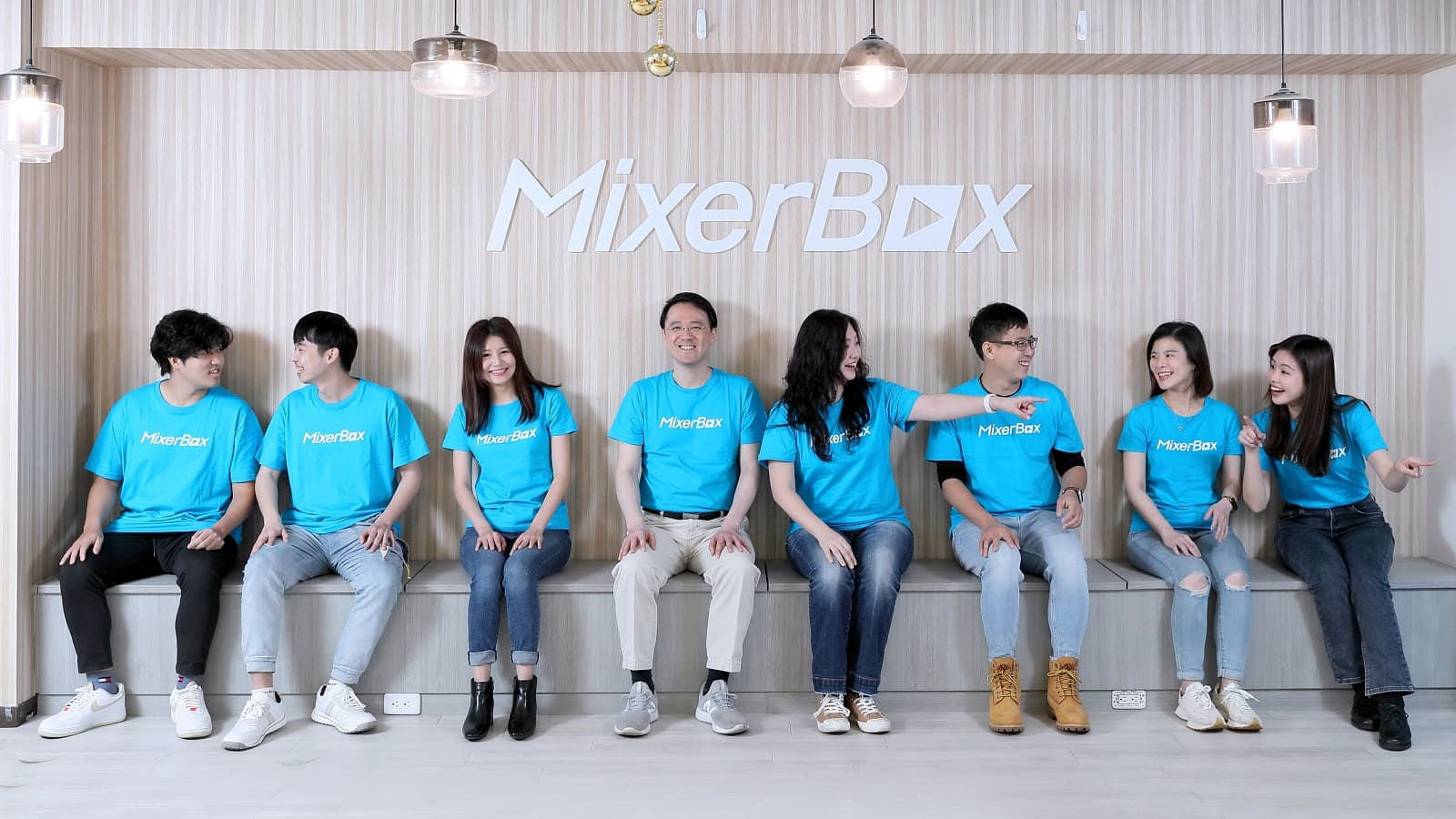Meet MixerBox, ChatGPT's largest plugin developer

Source:Chien-Tong Wang
ChatGPT has opened its doors to third-party plugin development. And its largest developer is Taiwan’s MixerBox. Who is its founder?
Views
Meet MixerBox, ChatGPT's largest plugin developer
By Meng-hsuan Yangweb only
At the end of March, ChatGPT announced a major policy change: allowing third-party developers to create plugins for ChatGPT and offering them to paid members for trial. This move is reminiscent of Apple's decision to allow third-party developers to create apps for the iPhone, which led to its explosive popularity. Bloomberg describes plugins as ChatGPT's "iPhone moment," posing a threat to Google's dominance.
As of June 23, a total of 548 plugins have been approved for ChatGPT, and surprisingly, the largest developer is MixerBox from Taiwan, with 13 plugins available, supporting functions such as media players, news, weather, and translation.
While the name MixerBox may be unfamiliar, its products include the MixerBox player and the BFF app, with over 300 million downloads worldwide. The founder of this company is 41-year-old Lai Junyu, son of Lai Yiren, the founder of Asia Optical.
Wearing metal-frame glasses and a MixerBox shirt paired with casual pants, Lai lacks the arrogance often associated with second-generation entrepreneurs.
Lai Yiren, known for his rigorous Japanese management style, rarely praises his children face-to-face. When Lai Junyu excitedly told his father about winning the global silver medal at the ACM programming competition, Lai Yiren simply replied, "Why are you so mediocre? Only a silver medal."
"I was taught from a young age to strive for first place," Lai said.
After graduating from university in Australia, Lai briefly worked at well-known technology companies such as VIA Technologies and TSMC before pursuing his graduate studies at Harvard. In 2006, he joined his father's company, Asia Optical.
At that time, Asia Optical established a new digital camera division, and Lai Yiren intended to cultivate Lai’s interest in business management. At the age of 25, Lai took on the role of department head, leading a team of 800 people in the process of creating products from scratch. He saw this as an excellent opportunity to put management theory and cross-departmental operation into practice.
However, in 2007, the iPhone was released, leading to rapid growth in the global smartphone market and posing a challenge to digital cameras. The department led by Lai faced losses due to intense competition, and could not resist the industry's paradigm shift.
Seeing the emergence of the iPhone and the Apple App Store, which allowed software products to gain global popularity through platforms, Lai felt a calling from his software-oriented soul that could not be ignored.
"The time for me to start a business has come," he thought.
Not knowing how to approach his father, Lai decided to communicate through the same interaction mode his father often used with employees — a business letter.
He wrote a resignation letter to his father. The secretary printed out the letter, allowing Lai Yiren to use a pen to review it as if it were an official document before scanning it and replying with a PDF.
"I remember my father wrote a big 'OK' on it," Lai recalls with a smile, knowing from his father's annotated file that he did not oppose his decision to start his own business.
On the verge of bankruptcy
In 2012, at the age of 30, Lai founded MixerBox with his savings of NT$1 million (roughly US$32110). The first product was an app called "Plasticizer Radar," which provided information on daily lists of hazardous food products released by the government. However, after the food safety crisis passed, no one used it anymore because it wasn't a product of necessity in people's lives.
 (Source: Chien-Tong Wang)
(Source: Chien-Tong Wang)
Afterward, Lai and his team developed 20 products, all of which failed, and he found himself on the verge of running out of cash. "We only had one month left before we couldn't pay salaries anymore," Lai says.
They held on.
The team dedicated themselves to creating the MixerBox player app, which quickly rose to the most downloaded music and sound app in Taiwan, the United States, Japan, Germany, and other countries. They also received investments from Japan's Infinity Venture (now Headline Asia) in a timely manner.
With this product that claimed top spots on domestic and international download rankings, and after two rounds of application, MixerBox entered Y Combinator (YC), the world's most powerful accelerator, in 2014.
During the training period at Y Combinator (YC), Lai based in an Airbnb with his team. (Source: Lai Junyu)
After joining Y Combinator, MixerBox successfully attracted funding from Silicon Valley figures such as Adam D'Angelo, the former CTO of Facebook, and Paul Buchheit, who helped create Gmail.
MixerBox investor and partner at Brighter Capital, Juan Yun-fang, played a crucial role in building Facebook's advertising business. Having observed MixerBox's success, Juan recognized that it came from long-term perseverance and a series of failures. It was the million-download product, MixerBox App, that gradually built up the company.
"The competition for app development on Android and iOS is fierce, and the platforms are constantly raising the bar. The MixerBox team has a strong ability to adapt to external changes, coupled with extensive practical experience," Juan said in an interview with CommonWealth. This was the main reason she decided to invest in MixerBox.
Joining Y Combinator was also crucial for Lai as it brought him the latest technological trends. At that time, the chairman of Y Combinator was none other than Sam Altman, the CEO of OpenAI. This connection allowed the YC community to receive the latest news from OpenAI in real-time.
Last year, when ChatGPT was just released, there was already a buzz within the YC community. Lai immediately sensed the potential of generative AI. They spent three months developing the ChatAI browser and released it in February this year. When ChatGPT took the world by storm, it became the first Mandarin Chinese app capable of integrating ChatGPT on mobile devices and soared to the top of Taiwan's App Store download rankings on February 23.
The race to launch the minimum viable product (MVP)
When ChatGPT announced the opening of its plugin program, MixerBox immediately transformed its product into plugins, becoming the only Taiwanese company among the first 70 approved vendors, offering a total of 13 plugins.
Why was MixerBox able to launch its products so quickly?
Talent is key. Lai has high standards for engineers and deliberately set up his office opposite National Taiwan University, offering a starting salary of NT$130,000 to attract top talent from the university's computer science program.
Additionally, Lai took inspiration from Finland's game company Supercell and implemented a highly autonomous and independent "cell-based team" structure. Different teams operate in separate small rooms and are responsible for all aspects of the development process, resulting in shorter development times. Even if they fail, as long as they bet on the right thing, it can become a hit product.
"First, focus on speed, then improve the product," Lai’s gamble is that as ChatGPT will potentially evolve into a large ecosystem in the future, the earlier they position themselves, the more advantages they will have. This aligns with the concept of the Minimum Viable Product (MVP), popular in Silicon Valley.
"I was very introverted when I was young," says Lai. However, he was well aware that running a company required effective communication skills, and his lack thereof could be fatal. He turned to books on communication, watched American talk shows to learn conversational techniques, and even forced himself to strike up conversations with strangers sitting next to him on the bus during his 30-minute commute to overcome his insecurities.
"I forced myself to chat with whoever I encountered, regardless of who they were," he conversed with hundreds of different strangers, gradually transforming his personality.
While studying at Harvard University for his master's degree in electrical engineering, Lai deliberately took courses at the business school to learn negotiation, innovation management, and law, earning more than twice the required credits to acquire the necessary entrepreneurial skills.
As a serial entrepreneur and founder of the programming language teaching platform CodeMentor, Liu Weiting, who has twice participated in YC, is Lai’s senior in the startup community. Liu observed Lai and believed that he has a strong vision for the company.
"Some people start a business with the intention of selling it to a big company, making a grand exit. But John (Lai Junyu), from day one, gives the impression that he wants to build an extraordinary enterprise," said Liu.
"He thinks independently and knows exactly what he wants," Liu described. He was deeply impressed when, on the eve of the 2014 YC Demo Day, MixerBox successfully raised funds. However, unlike other startups seeking exposure, Lai chose not to accept media coverage and maintained a low-profile approach.
(Source: Chien-Tong Wang)
"Drawing too much attention will only attract bigger competitors to come after us," Lai explained his strategy at the time.
With over one billion downloads, MixerBox has built an ecosystem and is now capitalizing on ChatGPT's generative AI, displaying a new wave of impressive performance.
But he still remembers, as a young boy, the excitement he felt when he saw Bill Gates on television. At that time, Microsoft had just released Windows 95, which was gaining popularity worldwide, and Gates had become the richest person in the world.
"I was really excited at that time because we computer enthusiasts were on the fringes," Lai’s eyes sparkled as he reminisced.
He made a wish back then to follow in Bill Gates' footsteps and use software to change the world. Today, MixerBox is stepping onto the global stage, with current revenue ranging between NT$500 million to NT$1 billion. Lai is unwilling to disclose profits but revealed that they started making money quite early on.
Leaving behind the hardware manufacturing industry of Asia Optical, Lai embraced the software industry that had been his childhood dream. Over the past ten years, he began to understand how difficult it is to run a business, just like his father does.
When asked if his father is satisfied with his current achievements, Lai smiles shyly and says that his father never asks about his business.
"But he would inquire and tell others, 'I heard John is doing well,' and he seems quite happy too," Lai said.
Have you read?
- Apps, musicians, language tutors: Taiwan’s AI visionaries
- The story behind Taiwan’s ChatGPT
- ChatGPT servers powered by Taiwan's Lite-On
Uploaded by Ian Huang






